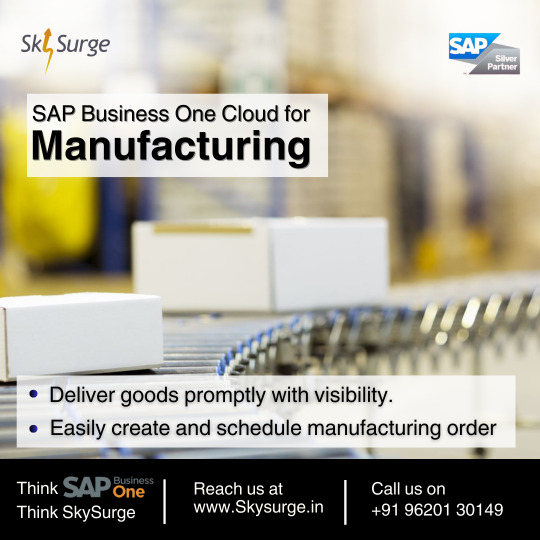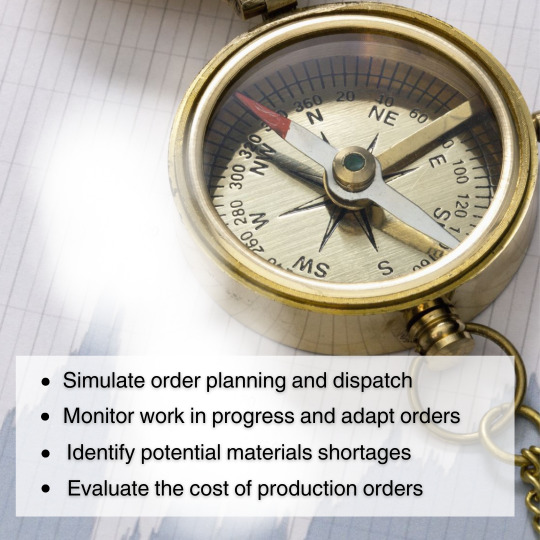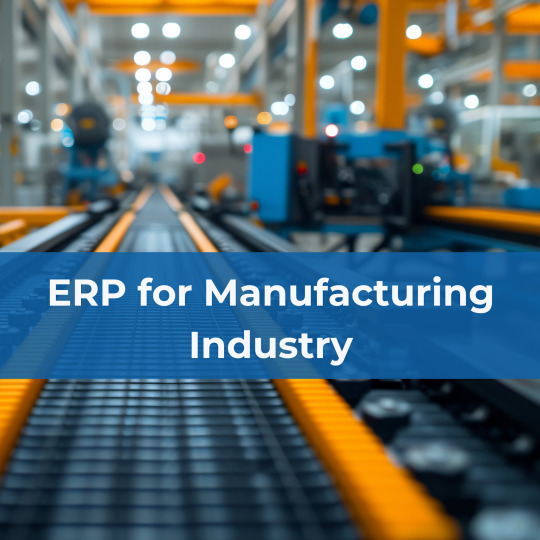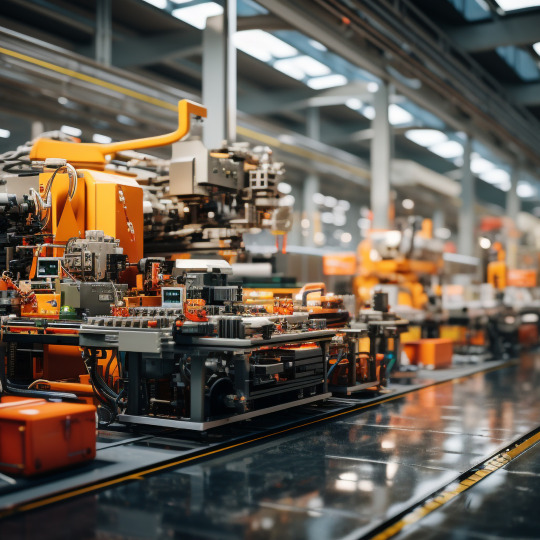#SAP Industry
Explore tagged Tumblr posts
Text
Navigating Industry 4.0 with SAP: A Journey Through Evolution and Innovation
Industry 4.0 with SAP is a dynamic phenomenon that is transforming modern business and manufacturing by indicating the convergence of digital technology, automated procedures, and data-driven practices. One of the leading suppliers of corporate software solutions, SAP (Systems, Applications and Products), is at the core of it. Over this revolutionary time of Industry 4.0, its progress has been…

View On WordPress
1 note
·
View note
Text
https://thedeepssystem.com/index.php/services-2/
SAP INTEGRATION
SAP integration services from Dynamo ensure successful integration by lowering the complexities and challenges of integration, improving ROI, and reducing TCO through the development of a migration roadmap. SAP enables you to boost productivity through successful SAP Hana, which helps integrate multi-system applications.
Dynamo provides front and back-office applications with which you can connect SAP with your full network of trading partners for ceaseless application and data integration flows. Dynamo infotech assists you in rapidly building stable, custom integrations with customers, vendors, and other business partners and integrating SAP with back-end systems and infrastructure. Sap integration service was previously called HANA Cloud Integration (HCI). It is software that acts as a bridge between an operating system or database and applications, (integration software). I

1 note
·
View note
Text
The company's grip on this city is insane. They're supposed to differentiate us from Ludwigshafen (Bodensee) by our river not by our capitalist value

#other industry cities don't get this treatment#imagine Wolfsburg (Volkswagen) or Walldorf (SAP) or Montabaur (1&1)
8 notes
·
View notes
Text
i do have criticisms of chainsaw man part 2 tbh as much as i gleefully enjoy it, and one of them is that it feels so heavily built on fire punch that it must not do *nearly* as much if you haven't read fire punch beforehand. it's like half of a conversation and if you're missing the other half i imagine it must sound a bit like nonsense
#eli talks#there are other criticisms i have but i feel that some of these criticisms are more tied around#-to the conditions in which csm is produce both in terms of fujimoto's state; the manga industry; and other things#like i do agree there's been a decrease in the quality of the art and panel flow#it's not nearly as creative as it used to be#but i also strongly suspect that even with breaks and jump+ fujimoto does not handle the wsj formula well (which v few do tbh)#and i suspect he's also not in a good place mentally rn. maybe even physically.#it bothers me less than others bc in the end what draws me to csm are themes and characters#but it is a shame. i strongly feel he'd do a lot better if he could write arcs into chunks that he delivered yearly or some shit#i also feel like it would do a lot more for people's reading of the series#rn part of why people are frustrated are the breaks in middle of arcs which saps the flow#but when you read it from the start the pacing flows a lot better#also have other.... i wouldn't call criticisms but 'things i can understand that others dislike'#that i won't get into here#anyhow i hope fujimoto isn't wrecking his health here. i'd rather he take years off then kill himself at this
19 notes
·
View notes
Text
ITRadiant Optimizes Supply Chain Efficiency with SAP for Supply Chain Solutions
Discover how ITRadiant leverages SAP for supply chain solutions to streamline operations, enhance visibility, and maximize efficiency in your supply chain management. Unlock the power of SAP technology for a more agile and responsive supply chain.
2 notes
·
View notes
Text
sigh i got a really cool käärijä fanart idea but i don’t really draw anymore rip
#probably still gonna try to draw it but yeah#impostor syndrome is strong lmao that's what working in animation does to you#seeing good animators drawing amazing stuff everyday while you work in a non-drawing part of the industry saps your confidence
3 notes
·
View notes
Text
Revolutionizing Manufacturing: Top Trends to Watch in 2023

The manufacturing industry faced several challenges in 2022, including disruptions in the supply chain, transportation difficulties, worker shortages, and inflation. As a manufacturing company, it is essential to stay informed about the emerging industrial developments to prevent the issues that plagued the industry last year.
However, one thing we can tell you for sure is, having the right technology in place can bring you closer to gaining a competitive edge and adapting to the changing industry dynamics. To help manufacturing businesses gain this edge, we offer next generation SAP ERP solution.
What are some technological trends the manufacturing industry can expect in 2023?
Industry 4.0 and Digital Transformation
Industry 4.0 and digital transformation will continue to be major drivers of innovation in the manufacturing industry in 2023. With the rise of the Internet of Things (IoT), Artificial Intelligence (AI), and other advanced technologies, manufacturers will have unprecedented access to real-time data, which will enable them to optimize their operations and improve efficiency. By integrating digital technologies across the entire supply chain, manufacturers will be able to achieve greater flexibility, agility, and responsiveness to changing market demands.
Advanced Robotics and Automation
As the cost of robotics and automation technology continues to decrease, we can expect to see an increased adoption of these technologies in the manufacturing industry. Robotics and automation can help manufacturers reduce labor costs, improve quality and consistency, and increase productivity. With the advent of more advanced robotics and automation systems, we can expect to see greater levels of collaboration between human workers and robots, as well as the development of more complex and sophisticated automation systems.
Sustainability and Green Manufacturing
As the world becomes increasingly aware of the impact of climate change, sustainability and green manufacturing will become more important in 2023. Manufacturers will need to find ways to reduce their environmental impact, including the use of renewable energy sources, the reduction of waste and emissions, and the adoption of sustainable materials and processes. Customers are also becoming more conscious of their environmental impact, which means that manufacturers who prioritize sustainability will be more competitive in the marketplace.
Additive Manufacturing
Additive manufacturing, also known as 3D printing, is a rapidly growing technology that is changing the way manufacturers design, prototype, and produce products. In 2023, we can expect to see an increased adoption of additive manufacturing technologies, particularly in industries such as aerospace, healthcare, and automotive. With the ability to produce highly complex parts and components on-demand, additive manufacturing will enable manufacturers to achieve greater levels of customization and flexibility.
Reshoring and Nearshoring
The COVID-19 pandemic has highlighted the risks of global supply chains and the importance of resilience and agility in manufacturing. In 2023, we can expect to see more manufacturers exploring reshoring and nearshoring strategies to reduce their reliance on overseas suppliers and improve their ability to respond to changing market conditions. By bringing production closer to home, manufacturers can reduce lead times, improve quality control, and reduce transportation costs.
In conclusion, the manufacturing industry is set to undergo significant changes in 2023, driven by digital transformation, advanced robotics and automation, sustainability, additive manufacturing, and reshoring and nearshoring. Manufacturers who stay ahead of these trends will be better equipped to compete in an increasingly complex and competitive global marketplace.
If you want to transform your business by implementing latest solutions, get in touch with the team of Techscope Technologies.
Source: https://techscope.co.in/revolutionizing-manufacturing-top-trends-to-watch-in-2023/
3 notes
·
View notes
Text
The retail business is dynamic and complicated, requiring the smooth coordination of several activities, including client deliveries, shop sales, warehousing, and procurement. In these businesses, each mistake might lead to monetary losses and unhappy clients.
0 notes
Text
Transform with SAP Industry 4.0 Solutions for Smart Factories
Explore SAP Industry 4.0 Solutions' impact on manufacturing. Unlock intelligent products, and factories with Web Synergies' expertise in SAP technologies.
1 note
·
View note
Text
1 note
·
View note
Text
SAP AMS
Application Management Services or AMS are services with which, after a new implementation, application support is provided for the customer’s SAP landscape.
This describes the procedure for authorizing, planning and implementing a change to the business process in the production system. All changes in the customer’s system that are not caused by a malfunction or a problem, or that have been agreed as a standard change, are considered a Change Request.

1 note
·
View note
Text


Make manufacturing simple with SAP Business One Cloud! 🌟 Plan and track your work, check for missing materials, and keep everything running smoothly. It's like having a smart helper to make sure you finish on time and save money too
#sap b1#cloud erp#sap erp#clouderp#sap business one#erpsolutions#erp software#erp for small business#sapbusinessone#cloud partner#manufacturing erp#manufacturing industries#manufacturing erp software#manufacturing with netsuite#services#industry#industries#manufacturing supply company#warehouse#development#manufacturing consent
0 notes
Text
SAP Solutions: Transforming the Food and Beverage Industry
The food and beverage industry faces unique challenges, such as supply chain complexities, strict regulatory requirements, fluctuating consumer preferences, and sustainability demands. SAP solutions are pivotal in addressing these challenges, enabling businesses to achieve operational efficiency, enhance customer satisfaction, and foster innovation.
#sap in food industry#sap business one for food industry#sap for food industry#sap software for food industry
0 notes
Text
Why ERP's Major Role in 4.O Manufacturing Industry?
Major Role of ERP for 4.O Manufacturing Industry
Today, the manufacturing industry is changing faster than ever before, and this has been accelerated by the coming of the fourth industrial revolution. This new one is said to be the fourth industrial revolution which integrates complex manufacturing with intelligent systems. To support this transition, Enterprise Resource Planning (ERP) systems including SAP Business One has gained centrality. They make work easy, faster, and even enable real-time analysis of data that is being captured. To maintain competitiveness and innovativeness of the 4.O manufacturing industries, companies are implementing ERP to respond and perform well to these changes.
Understanding ERP Systems in Manufacturing

You might have often thought about how the modern manufacturing companies keep all the running going. Enter ERP systems! ERP stands for Enterprise Resource Planning: it is like the brains of the manufacturing operations . It allows companies to make efficient decisions in order to control and/or develop all organizational fields. So let’s take a closer look at what makes ERP tick in the manufacturing environment.
Definition and Components of ERP
ERP systems are integrated application systems that attempt to achieve a single year of operations and manufacturing business management. Think about having a superhero that doesn’t save the world, but helps businesses to save their time and money! That’s ERP for you. It includes production, materials management, logistics, financial, personnel and public relations.
The components of an ERP system can be mind-blowing but wait for it! Here’s a quick rundown:
- Financial Management: Works in finance, perpetuates data, budgeting, and reportage.
- Supply Chain Management: Improves the efficiency of the material and product supply chain all the way through to the customer.
- Production Management: Oversees production activities with significant emphasis on ways to get them as optimized as possible.
- Inventory Management: Monitors stock status as well as the functioning of a warehouse.
- Human Resources: Is responsible for recruitment and selection of employees, processing of employees’ salaries, and recording of their details.
- Customer Relationship Management (CRM): Responsible for handling customers and records their sales.
These are integrated where each element provides an overview of the business processes and makes certain that pertinent information is assembled, conveyed and received appropriately.
History and Evolution of ERP in Manufacturing
Today, ERP is a complex system but it has come through a long evolutionary process starting out as a simple system with limited functionality. Initially, ERP systems emerged from materials requirement planning (MRP) systems as created in the 1960s and 1970s. These MRP systems were implemented with an aim of providing solutions on how much raw material to order and when.
Fast forward to the 1990s, ERP Systems were not only planning materials but extending to adaptive processes of the enterprise. When getting deeper into the 2010s, one could talk about cloud computing as an essential booster for business development. It made ERP systems access, flexibility, and scalability possible. Today, manufacturers have systems like SAP Business One that accounts for the dynamic need of manufacturers globally including the active manufacturing industry in India.
Key Features of ERP Systems for Manufacturing
Today’s ERP systems are chock full of functions that make them essential to any manufacturing organization. Here are some key features that stand out:
- Integrated Operations: Another key value of ERP is its efficiency at the centralization of activity. They disintegrate various portfolios of a business by effectively linking business processes while providing easy access to information.
- Real-Time Data Access: In ERP, one is in a position to make decisions because most of data is updated with real time data. This immediate visibility is vital because organizations need to be competitive when the new environment emerges.
- Automation: ERP helps the firm to complete several operational activities such as processing orders and remunerating employees and several other activities thereby leaving the employees time to focus on other critical activities in the business.
- Regulatory Compliance: Most of the ERP systems are equipped with compliance modules to ensure that the organization does not fall foul of the set legislation resulting in costly fines.
- Scalability: That is why ERP systems are regarded as a good investment, for the small local manufacturer or for the worldwide leader, as the systems are developed with the ability to grow with the organization.
From the brief outline of what ERP systems are, let's now proceed to the discussion of the effects and applications of ERP systems in real life manufacturing.
The Impact of ERP on Manufacturing Processes
The impact of ERP systems on manufacturing processes is significant and transformative. They don't just help run the business; they take manufacturing to a whole new level of efficiency and effectiveness.
Streamlining Production Planning and Inventory Management
ERP can be regarded as a wizard that sends manufacturers to order appropriate inventory at the correct time. Through ERP, production planning is done effectively and in a way that enables institutions to meet customer demand and needs without incurring many losses through retaining many inventories within its fabric or through often shutting down production.
- Efficient Resource Allocation: This is helpful in that ERP enables organizations to schedule production plans and control aspects of resource utilization in order to reduce time wastage and optimize efficiency.
- Inventory Optimization: Inventory management is another key area where ERP systems make a lot of difference by automating inventory and controlling optimum stock levels to cut down carrying costs and to avoid situations where you may run over or short of stock.
- Forecasting: While years past may inspire certain educated guesses on the manufacturers part, ERP for demand planning provides fact-based insight, which in turn increases satisfaction among clientele.
Improving the Quality of Control and Assessments
For any manufacturing company, quality always reigns supreme and it’s at this point where the ERP system comes in handy. These tools enable organizations with real time monitoring and quality assurance of the final product within ERP systems.
- Process Monitoring: In using the ERP systems, there is a way to monitor the production processes in real time, and variations affecting quality can be ascertained at once.
- Traceability: In the case of a problem, ERP generates a complete traceability trail to control and handle product recall or defect problems, lessening danger and protecting brand reputation.
- Compliance and Reporting: Time-consuming tasks of documentation and report generation are also automated, and this Reuel asserts that quality is not a mere aim, but a guarantee.
Improving Supplier and Customer Relationship Management
Good relationships with suppliers and customers are crucial in the manufacturing sector. ERP systems facilitate these relationships through better communication and data management.
- Supplier Collaboration: With ERP, manufacturers can work closely with suppliers by sharing forecasts and demands, improving lead times and reducing supply chain disruptions.
- Customer Satisfaction: From order tracking to managing customer feedback, ERP systems enhance the customer experience by ensuring timely deliveries and quality service.
- Data Sharing: ERP systems aggregate customer data, allowing manufacturers to understand buying patterns, preferences, and feedback, leading to tailored marketing strategies and improved product offerings.
Thus, ERP systems are not only hardware but it is platforms that change games for the manufacturing unit of an organization. They let the manufacturers be efficient, establish adequate control over the quality of goods, and maintain a good and solid supply chain with the suppliers and customers. In the context of Industry 4.0 which is gradually defining the future of manufacturing, an ERP system is well-positioned to ensure that a business remains relevant, complies with the law, and delivers excellent customer experience.
Therefore, if you have been in the manufacturing sector and have not incorporated ERP magic, then wouldn’t it be of immense benefit to think about it right now. Since the future of manufacturing in India and across the world is right tied with these systems, the ERP integration can be your key to novelty and victory.
There you have it! ERP systems translated for the new generation manufacturing enterprises. Well, it is time to work better, not more!
Benefits of Implementing ERP for Manufacturing Industry

Enterprise Resource Planning (ERP) systems is become a new trend in manufacturing industries particularly in 4.0 manufacturing context. An ERP system is capable of linking different business processes which act as a technological advantage for manufacturers and greatly enhances their operations. Now that we have established the foreground information it is about time we look at some of the aspects that stand to gain from the integration of the ERP systems in the manufacturing industry.
Better performance, efficiency and productivity
In the very center of any manufacturing company, it is possible to single out such notions as effectiveness and output. Essentially, ERP for manufacturing industry help in enhancing these aspects since the systems incorporate optimized processes of various departments. ERPs perform repetitive as well as redundant processes automatically and hence reduce the capacity of people in making mistakes. For example, the ERP systems can provide the link between the manufacturing or production plan and the inventory to ensure that right material is available on the shop floor when needed, eliminating unnecessary idle time.
Furthermore, ERP systems are integrated information systems in which employees can find actual information related to various activities, so employees can make the most of their time instead of spending time and efforts to search for information. Since information flow between departments is not disrupted, problems that may slow down workflow are realized early and solved, which increases efficiency. This is important in an industry where timing is of the essence!
Cost Reduction and Profit Maximization
Meeting cost reduction targets have always been a prerequisite to survival in manufacturing especially where profit margins have to be optimized. It is toward this objective that ERP systems play a very crucial role to offer manufacturers a wealth of information on their operations. Because ERP systems incorporate detailed records of cost related to production processes, inventory, and supply chain management, the systems afford the businesses opportunities to reduce meaningful costs of production.
Moreover, by accurately predicting the demand for products in an organization and handling the levels of stocks being put in place ERP systems enhance stocks management. It helps to avoid overproduction and underproduction that cause lots of financial losses in the business. In addition, since the processes are mostly performed automatically, one of the main factors that decrease the overall labor cost are achieved, thus resulting in an improved profitability.
Real-time Data Analytics and Decision Making
That said, real-time data analysis for better decision-making increases the potency of ERP systems in manufacturing . Since many industries have become data-oriented, it is critical to have real-time data when making business decisions. By having an ERP system, it is possible to track KPIs on manufacturing as well as predict trends that may affect manufacturing efficiency or the market.
It also helps to increase response time to changes in supply and demand, so that manufacturers can fit their actions to the market. Further on, upgrade in data visibility results in enhancement in forecast and planning which in turn result in better resolution and utility of resources and enhanced customer satisfaction. This can be achieved by optimizing the use of data so that manufacturers may know their competitors better and hence capture the right market opportunities for growth.
Challenges in ERP Software for Manufacturing Industry
There are many benefits to ERP systems in manufacturing organizations but it is not without its issues in the transition. Here are some of the usual problems manufacturers encounter while implementing ERP systems and how the latter can be addressed.
Interoperability with Other Systems
Manufacturers find it quite challenging to integrate the new ERP Software for Manufacturing Industry with the rest of the existing legacy systems. A high percentage of manufacturing organizations still employ suboptimal methods and technologies incompatible with up-to-date ERP systems. Depending on the degree of incompatibility, there can be some loss of efficiency during the period necessary to resolve it, as well as certain costs associated with time loss.
To counteract impediments to integration, manufacturers need to evaluate integration readiness by performing a current state assessment of manufacturing systems prior to ERP adoption. It is crucial in this evaluation to determine potential conflicts and assist in the creation of a detailed integration strategy. However, there are several steps to consider when implementing the choice of an ERP system in the following aspects: Furthermore, selecting the ERP system that provides capabilities of integration and flexibility can eliminate some of these challenges. It also helps if one has worked with experienced ERP vendors or consultants, who would be better placed to appreciate the different factors involved in implementing a manufacturing system.
Managing Change and User Adoption
Implementation of a new ERP system may lead to substantial changes in practices of a manufacturing enterprise, as well as redefine roles and tasks of employees. The employees may resist change as some may prefer sticking with the current systems in place. One of the most significant tasks here remains guaranteeing a seamless transition and post-implementation acceptance.
To address this, manufacturers should encourage openness and engage the users at the initial stage. Delivering training that is more extensive and engaging in collecting feedback from the employees can foster confidence and promote acceptance. Concerns can also be addressed by providing information on what the new ERP system will do for them and how it is going to facilitate their operations. This means that every change management strategy ought to be incremental and should illustrate how the change affects the employees in the short run.
Ensuring Data Security and Compliance
In the current world where operations and almost everything are computerized, there is high demand for protection of data, particularly in manufacturing industries. The integration of a new ERP system poses risks inherent with exposure to data and threats pertinent to industry standards. Managers working for the manufacturing firms have to guarantee that the company and clients’ data is safeguarded from unauthorized access or cyber threats.
In their choice of an ERP provider, manufacturers are advised to put security into consideration and look for the provider with robust security policies and compliance compliance certificates. This involves having aspects of encryption, rules for accessing data, and even a security check in the program to check for vulnerabilities. Furthermore, to ensure data accuracy, data utilization, and adherence to legal requirements, a solid foundation for data governance has to be built. To address security risks during the implementation of ERP and also after the implementation, other necessary measures include security training of the employees and security awareness within the firm.
Thus, ERP systems are also crucial applications for updating and enhancing operations in the 4.0 manufacturing environment. The advantages of increased efficiency, decreased costs, and evidence-based decision-making are evident, however, they include a number of integrating concerns that relate to change and data management and protection. If implemented and managed properly, manufacturers can use all the possibilities of ERP systems to boost their innovations, productivity, and revenues.
Future Trends and Innovations in ERP for the Manufacturing Sector
The manufacturing world is changing and at the heart of this change is ERP, or Enterprise Resource Planning. Thus, the applicability of ERP systems does not diminish when industries first set out on Industry 4.0. Let me explain what technology is doing to ERP to define the future of the manufacturing industry.
Integration with IoT and IIoT
But the most significant trend is the integration of the ERP systems with the internet and, in particular, with the Internet of Things (IoT) and Industrial Internet of Things (IIoT). This integration allows machines to feed data to ERP systems and this data is always current to help in efficient decision making. For instance, an assembly line would detect that it requires repair, and the information gets input to the ERP system, the system informs the maintenance department or even orders spares. All these can be achieved through the integration which can eventually help to cut down the much needed downtime.
AI and Machine Learning Improvements
If you are new to the world of technology, chances are that you have heard about Artificial Intelligence (AI) and Machine Learning (ML) before. These technologies are helping ERP by giving them forecasting and analysis. With AI-powered ERP platforms, manufacturers can:
- Predict equipment failures: Similar to human operators, AI Algorithms can assess and interpret patterns in the data that point towards possible failure of a machine in order to rectify the problem before it happens.
- Optimize supply chains: Thus, ML can discover from historical information about supply routes and timings and recommend the most effective ones with the least hindrance and requisite.
- Enhance quality control: Thus, through analyzing big data, it is possible to detect imperfections in production and reach a higher quality, earlier.
Cloud-Based ERP Solutions
The move toward cloud-based ERP has continued to grow, providing benefits that on-premise systems cannot; namely; flexibility and scalability. Cloud ERP systems allow manufacturers to:
- Access data anywhere, anytime: They can be P/C or mobile, but remain in touch with the factory floor in real time.
- Easily scale operations: With cloud solutions, as companies expand, there is little need to overhaul the infrastructure of the delivery process.
- Improve collaboration: Improve the coordinator and effective communication and interaction between different departments and locations and if possible between sites all over the world.
Cybersecurity Measures
Digital transformation, as well as interconnected systems and networks, the issue of cybersecurity remains the key priority. As the ERP systems progress, organizations are having stricter measures to cover for the critical information. Some of the characteristics that are normal to find nowadays are more secure and stronger encryption modes, two or three factors of authentication, and real time monitoring. For manufacturers, this means more secure data, as well as a minimized chance of a cyber threat that might affect performance.
Bespoke and Friendly Modules of an ERP System
The ‘Fortune 500’ mentality is no longer dominant as gods-like ERP systems of the past were ponderous and hostile. Organizations are now moving to more natural and user friendly interfaces. One of the recent trends in modules of an erp system is that design in terms of UI/UX is gradually improving. These systems can be easily operated by the employees or the technical workforce, little learning time is required thus making the entire process efficient.
ERP and Sustainability
Environmental or ecological responsibility is rapidly becoming an important issue to manufacturers in the global marketplace. The latest developments in ERP solutions are in compliance with these green programmes through supporting the analysis of resource consumption and waste generation by companies. Features include:
- Tracking carbon footprints: ERPs can estimate the amount of emissions made and provide solutions on how to optimize emission’s figures.
- Efficient resource management: Inherent in systems is the effectiveness in the put to use of materials thus discouraging the use of the excess and encouraging recycling.
- Compliance with environmental regulations: Real time updates and reports make it extremely easy for manufacturers to implement compliance with regulatory metrics.
ERP Systems will continue to be part of the manufacturing industry as it prepares to march forward into the next phase. Based on the presented trends and innovations, manufacturers can not only improve their operations but also become pioneers of the new generation 4.0 industry. From integrating new technologies to operating in the cloud, to sustainability initiatives, ERP is a virtually limitless platform. Therefore, to a bright, efficient and innovative future of the manufacturing sector with ERP at the heart of it – cheers.
#erp software#erp solution#erp for manufacturing industry#sap business one#manufacturing industry#erp software for manufacturing
0 notes